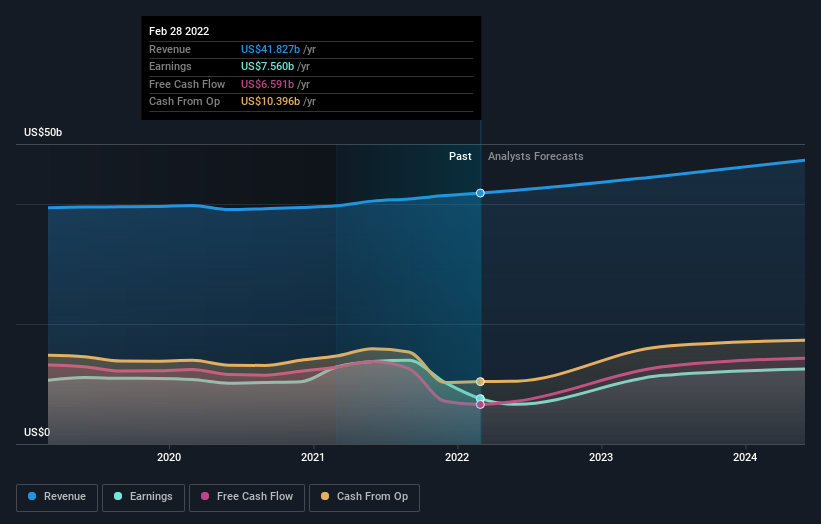Is Now An Opportune Moment To Examine Oracle Corporation (NYSE:ORCL)?
Today we're going to take a look at the well-established Oracle Corporation (NYSE:ORCL). The company's stock saw significant share price movement during recent months on the NYSE, rising to highs of US$84.29 and falling to the lows of US$67.04. Some share price movements can give investors a better opportunity to enter into the stock, and potentially buy at a lower price. A question to answer is whether Oracle's current trading price of US$72.78 reflective of the actual value of the large-cap? Or is it currently undervalued, providing us with the opportunity to buy? Let’s take a look at Oracle’s outlook and value based on the most recent financial data to see if there are any catalysts for a price change.
See our latest analysis for Oracle
What's the opportunity in Oracle?
Great news for investors – Oracle is still trading at a fairly cheap price according to my price multiple model, where I compare the company's price-to-earnings ratio to the industry average. I’ve used the price-to-earnings ratio in this instance because there’s not enough visibility to forecast its cash flows. The stock’s ratio of 25.69x is currently well-below the industry average of 41.92x, meaning that it is trading at a cheaper price relative to its peers. What’s more interesting is that, Oracle’s share price is quite stable, which could mean two things: firstly, it may take the share price a while to move closer to its industry peers, and secondly, there may be less chances to buy low in the future once it reaches that value. This is because the stock is less volatile than the wider market given its low beta.
What does the future of Oracle look like?
Future outlook is an important aspect when you’re looking at buying a stock, especially if you are an investor looking for growth in your portfolio. Buying a great company with a robust outlook at a cheap price is always a good investment, so let’s also take a look at the company's future expectations. Oracle's earnings over the next few years are expected to increase by 62%, indicating a highly optimistic future ahead. This should lead to more robust cash flows, feeding into a higher share value.
What this means for you:
Are you a shareholder? Since ORCL is currently trading below the industry PE ratio, it may be a great time to increase your holdings in the stock. With a positive profit outlook on the horizon, it seems like this growth has not yet been fully factored into the share price. However, there are also other factors such as capital structure to consider, which could explain the current price multiple.
Are you a potential investor? If you’ve been keeping an eye on ORCL for a while, now might be the time to make a leap. Its buoyant future profit outlook isn’t fully reflected in the current share price yet, which means it’s not too late to buy ORCL. But before you make any investment decisions, consider other factors such as the strength of its balance sheet, in order to make a well-informed investment decision.
In light of this, if you'd like to do more analysis on the company, it's vital to be informed of the risks involved. Every company has risks, and we've spotted 5 warning signs for Oracle (of which 2 can't be ignored!) you should know about.
If you are no longer interested in Oracle, you can use our free platform to see our list of over 50 other stocks with a high growth potential.
Have feedback on this article? Concerned about the content? Get in touch with us directly. Alternatively, email editorial-team (at) simplywallst.com.
This article by Simply Wall St is general in nature. We provide commentary based on historical data and analyst forecasts only using an unbiased methodology and our articles are not intended to be financial advice. It does not constitute a recommendation to buy or sell any stock, and does not take account of your objectives, or your financial situation. We aim to bring you long-term focused analysis driven by fundamental data. Note that our analysis may not factor in the latest price-sensitive company announcements or qualitative material. Simply Wall St has no position in any stocks mentioned.

 Yahoo Finance
Yahoo Finance 
